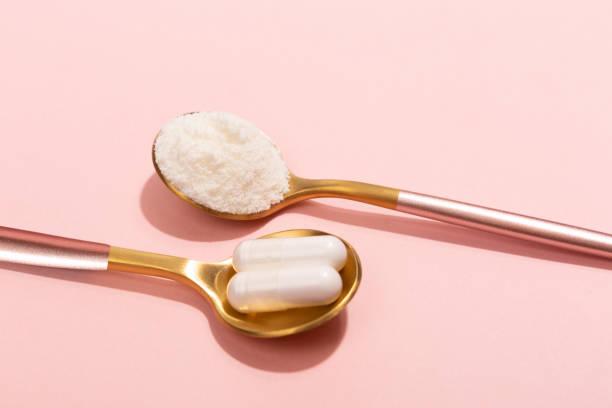-
Новости
- ИССЛЕДОВАТЬ
-
Страницы
-
Группы
-
Мероприятия
-
Reels
-
Статьи пользователей
-
Offers
-
Jobs
-
Форумы
-
Кинозал
Collagen for Gut Health: What Science Says and How to Use It?

When people hear the word collagen, they often think of smooth skin, strong nails, or joint protection. But in recent years, researchers and wellness practitioners have turned their attention to another surprising role of collagen: supporting gut health. Your digestive system isn’t just about breaking down food; it’s a complex structure that relies on strength, integrity, and balance. Collagen may play a role in all three.
What Is Collagen?
Collagen is the most abundant protein in the human body, making up nearly one-third of all protein content. It acts like the scaffolding that holds our tissues together, providing structure and elasticity.
There are many different types of collagen, but a few stand out when it comes to the digestive system:
-
Type II collagen is often linked with cartilage, but is also found in the lining of the intestines.
-
Type III collagen – helps strengthen the lamina propria, a layer that supports the gut lining.
As we age, collagen production naturally declines, which may contribute not only to wrinkles or weaker joints but also to a less resilient gut barrier.
Why Collagen Matters for Gut Health?
Maintaining Gut Barrier Integrity
A strong gut lining keeps harmful substances from leaking into the bloodstream. Collagen, particularly through its amino acids glycine and proline, helps reinforce this barrier. When collagen is lacking, the gut lining may become more permeable—a condition sometimes called “leaky gut.”
Supporting the Microbiome
Emerging research suggests that collagen peptides may act as a mild prebiotic, feeding beneficial gut bacteria. While this is still an early area of study, it hints at collagen’s potential to influence microbial balance and fermentation.
Reducing Digestive Discomfort
Some small human trials and anecdotal reports point to improvements in symptoms like bloating, cramps, and reflux when collagen is taken consistently. While more large-scale studies are needed, many people report easier digestion and improved bowel regularity when incorporating collagen into their routine.
Sources and Forms of Collagen
Whole-food sources:
-
Bone broth, long praised in traditional diets, is rich in natural collagen and soothing amino acids.
-
Fish skin, chicken skin, egg whites, and gelatin-based foods also provide smaller amounts.
Supplements:
-
Hydrolyzed collagen peptides (from bovine or marine sources) are popular because they are broken down into smaller molecules that are easier to absorb.
-
Daily doses range from 2.5 grams to 20 grams, depending on goals, with most gut-focused protocols suggesting around 10–20 grams.
Practical Tips for Incorporating Collagen
-
Mix it in: Collagen powders dissolve easily in coffee, smoothies, or soups.
-
Stay consistent: Benefits are linked to regular, daily intake rather than timing.
-
Pair with gut-friendly foods: Combining collagen with fiber, fermented foods, and healthy fats can enhance its digestive benefits.
-
Check the source: Choose reputable brands, and if you’re sensitive to beef or fish, look for alternatives that fit your dietary needs.
Scientific Evidence and Limitations
So far, research into collagen and gut health is promising but limited:
-
Early trials suggest collagen may improve gut symptoms and support barrier integrity.
-
Some evidence hints at microbiome benefits, though this field is very new.
However, many studies are small, short-term, or industry-funded. Collagen supports gut health, but it is not a stand-alone treatment. It works best as part of a broader strategy that includes balanced nutrition, stress management, and lifestyle habits.
Conclusion
Collagen is more than a beauty protein—it plays a vital role in the structure and function of the digestive system. By strengthening the gut lining, supporting microbial balance, and potentially easing digestive discomfort, collagen can be a valuable addition to a gut-health toolkit.
Whether through bone broth simmered at home or a daily scoop of collagen peptides, incorporating this protein may help build a stronger, more resilient digestive system. While science continues to explore its full potential, one thing is clear: when it comes to gut health, collagen deserves a seat at the table.
- AI
- Vitamins
- Health
- Admin/office jobs
- News
- Art
- Causes
- Crafts
- Dance
- Drinks
- Film
- Fitness
- Food
- Игры
- Gardening
- Health
- Главная
- Literature
- Music
- Networking
- Другое
- Party
- Religion
- Shopping
- Sports
- Theater
- Wellness


